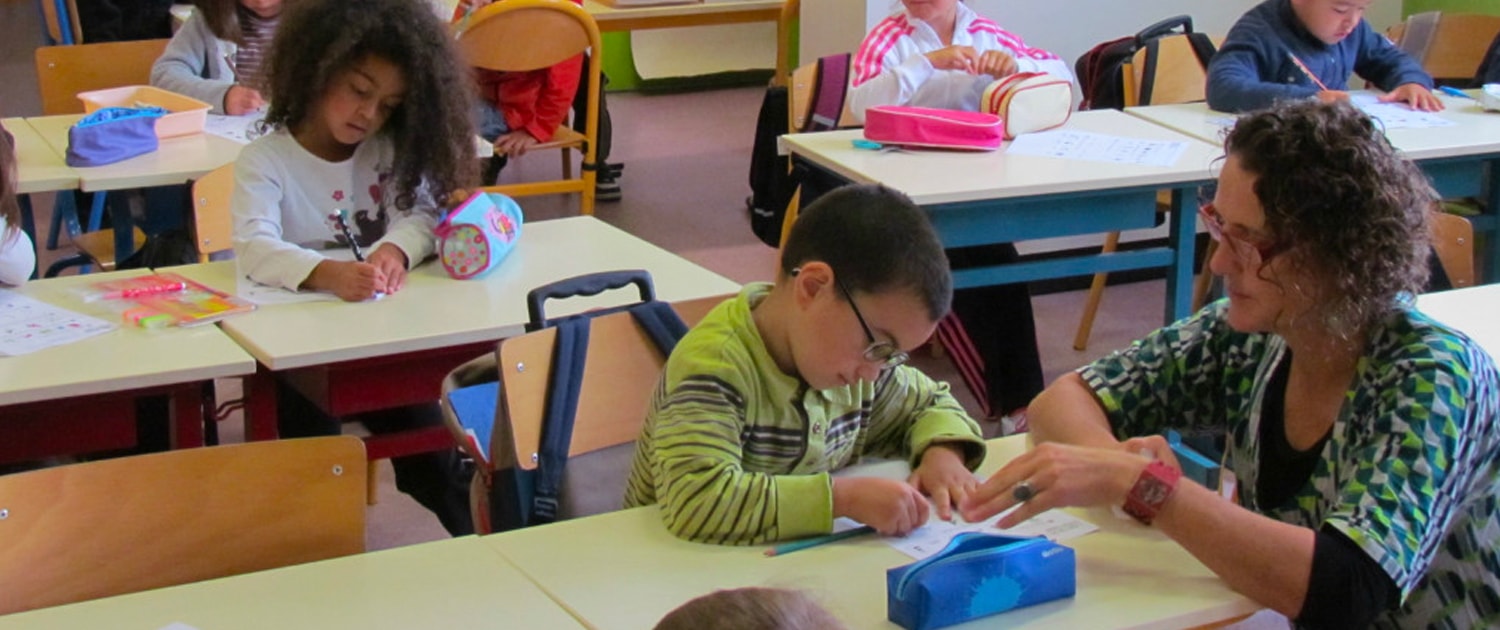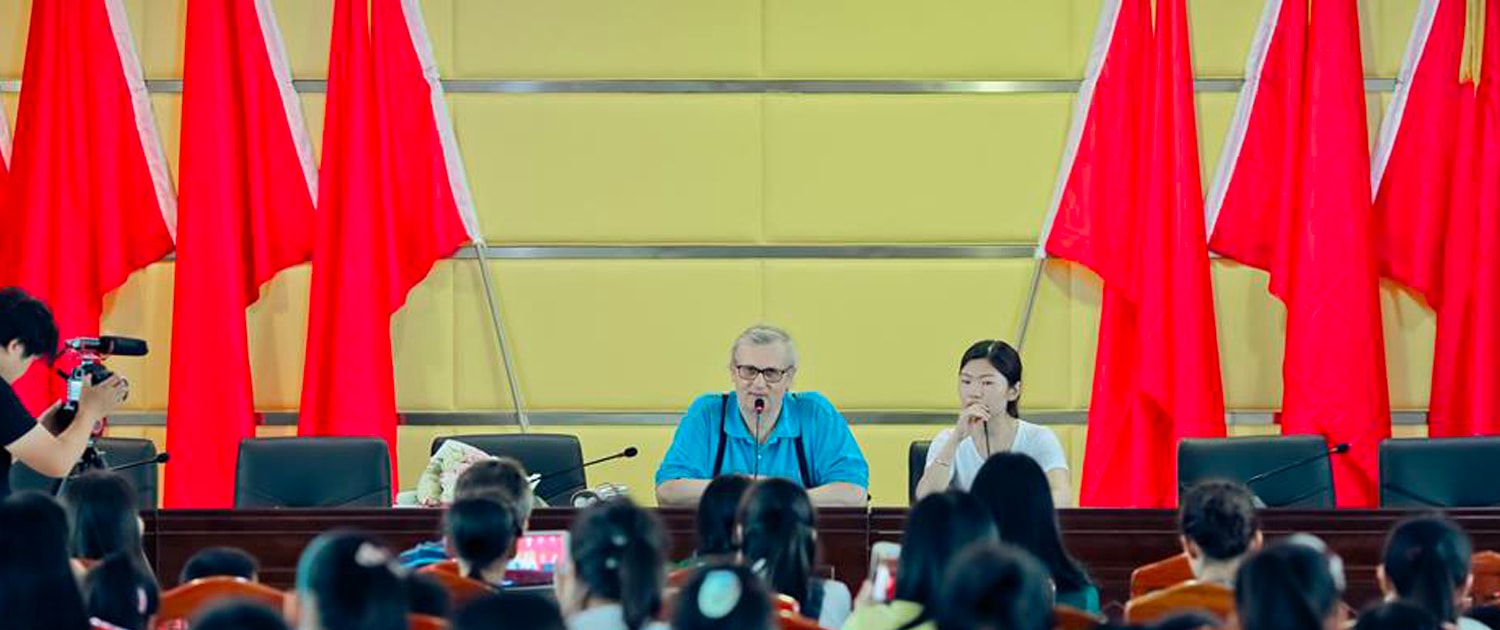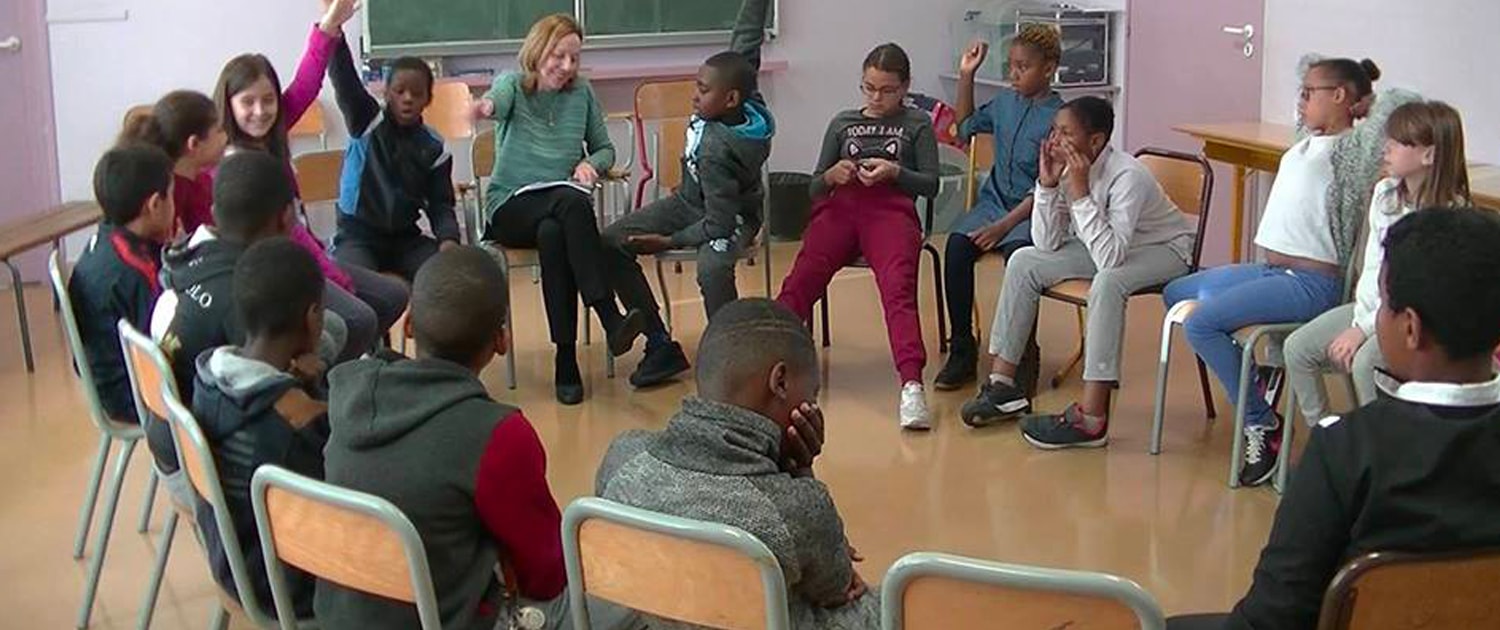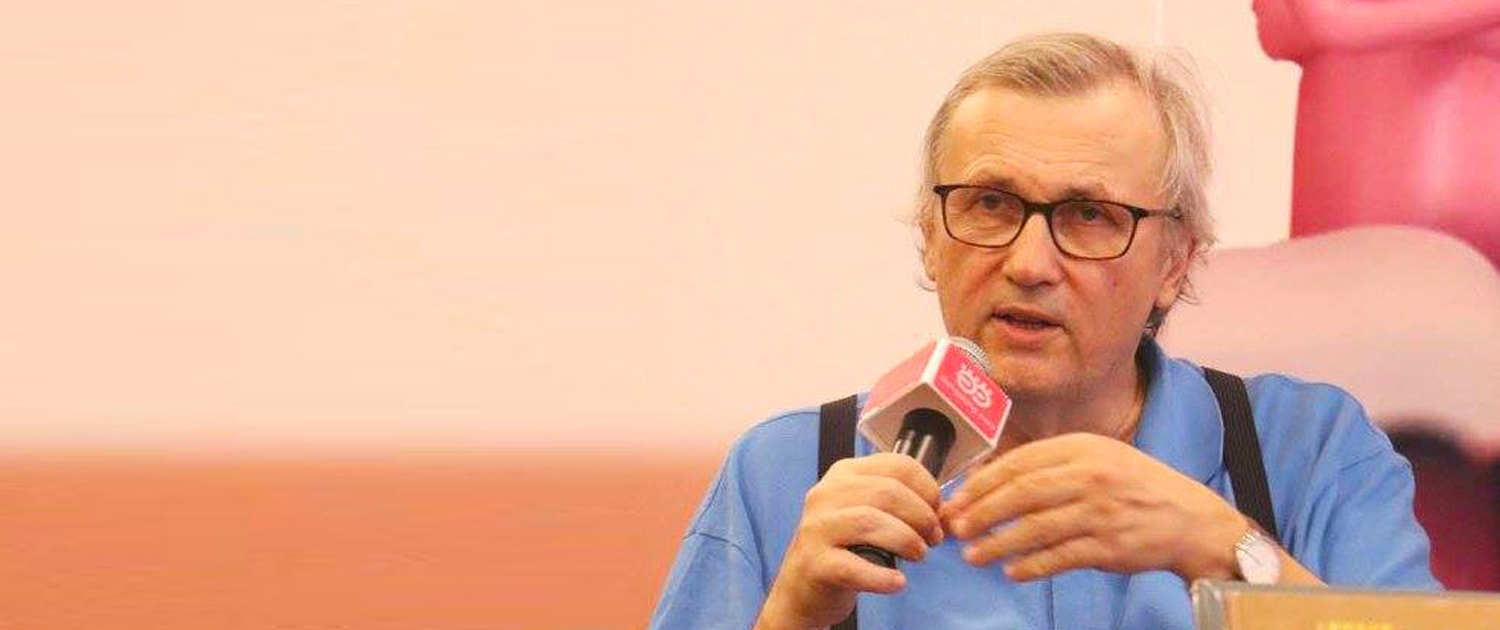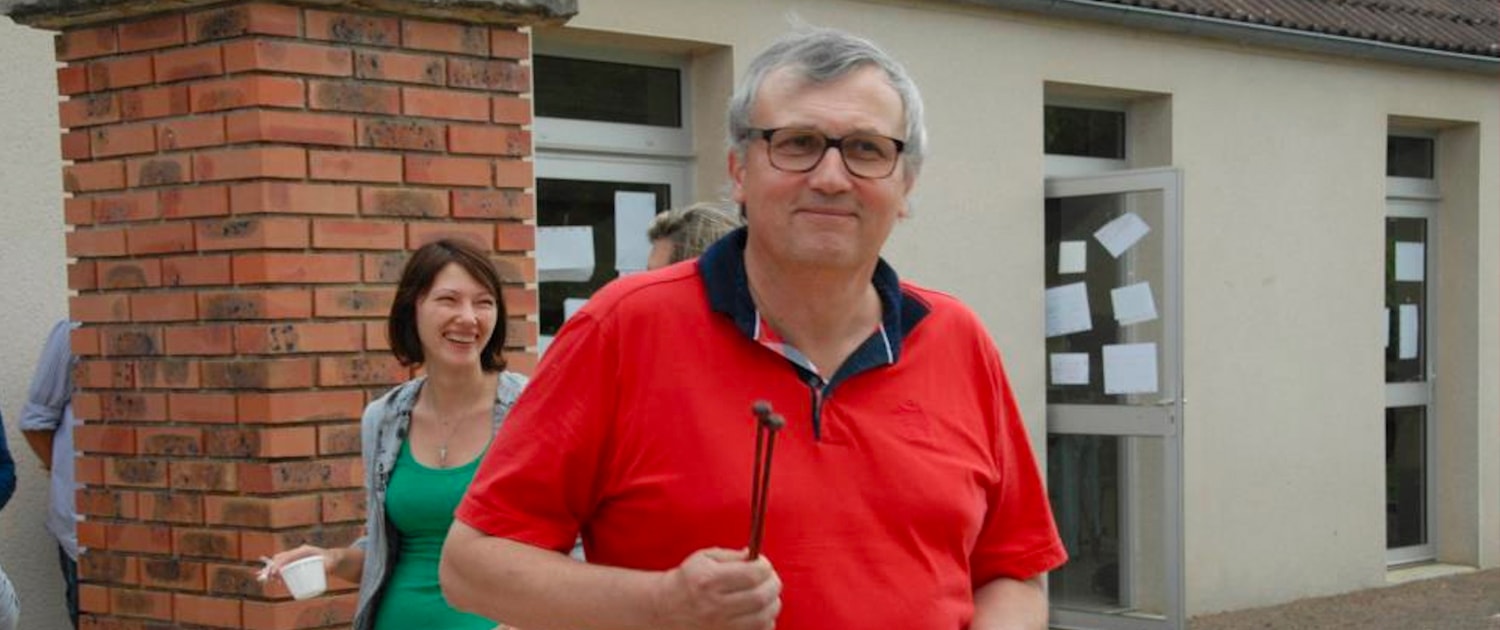Oscar Brenifier
Oscar Brenifier holds a Bachelor of biology degree (University of Ottawa) and a PhD in Philosophy (Paris IV – Sorbonne). For many years, in France as well as in the rest of the world, he has been working on the concept of ‘philosophical practice’, both from a theoretical and practical viewpoint. He is one of the main promoters of the project of philosophy in the city, organizing philosophy workshops for children and adults and philosophy cafés, working as a philosophy consultant, etc. He has published about thirty books in this domain, including the ‘Philozenfants’ series (Editions Nathan), which has been translated into over twenty-five languages. He founded the Institut de Pratiques Philosophiques (Institute of philosophical practice), to train practical philosophers and organize philosophy workshops in various places: schools, media centres, old people’s homes, prisons, social centres, firms, etc. He is one of the authors of the UNESCO report: “Philosophy, a school of freedom”.
NOUVEAU PROGRAMME D'AUTOMNE:
Se former aux compétences philosophiques
Programme de 3 mois
Début - 29 octobre 2022
Fin - 31 janvier 2023
Pratiquer, entre autres, l'argumentation, l'interprétation, la problématisation, le questionnement.
- 2 séminaires: Samedi et dimanche (10h-18h)
- 2 leçons par semaine (contenu théorique)
- 2 exercices par semaine (avec retours et commentaires des tuteurs)
- 1 atelier par semaine sur la compétence du moment
- Atelier niveau 1 : lundi 19h-21h
- Atelier niveau 2 : mardi 19h-21h
Contact:
mail: Leila Millon Bierre telegram: +33768428208 Whatsapp: +33768428208
New Video: Philosophical Consultation
“Who am I? Where am I going? What is my vision of the world? How could I think differently? All these fundamental questions that must always be ignored, because we are caught up in the daily routine and obligations. The philosophical consultation is a thinking exercise, where the philosophical practitioner invites his interlocutor to settle down momentarily, in order to examine those fundamental questions. In this book, the author mentions different facets of this practice, describing its issues, its skills and difficulties. Various theoretical elements are presented, as well as the description and analysis of a session of consultation.”
In this session, Oscar Brenifier presents some of the highlights of his latest book on the subject. Then he gives an example of such a consultation with one of the participants, in order to show how the process takes place.
New Book: The Art of Philosophical Practice
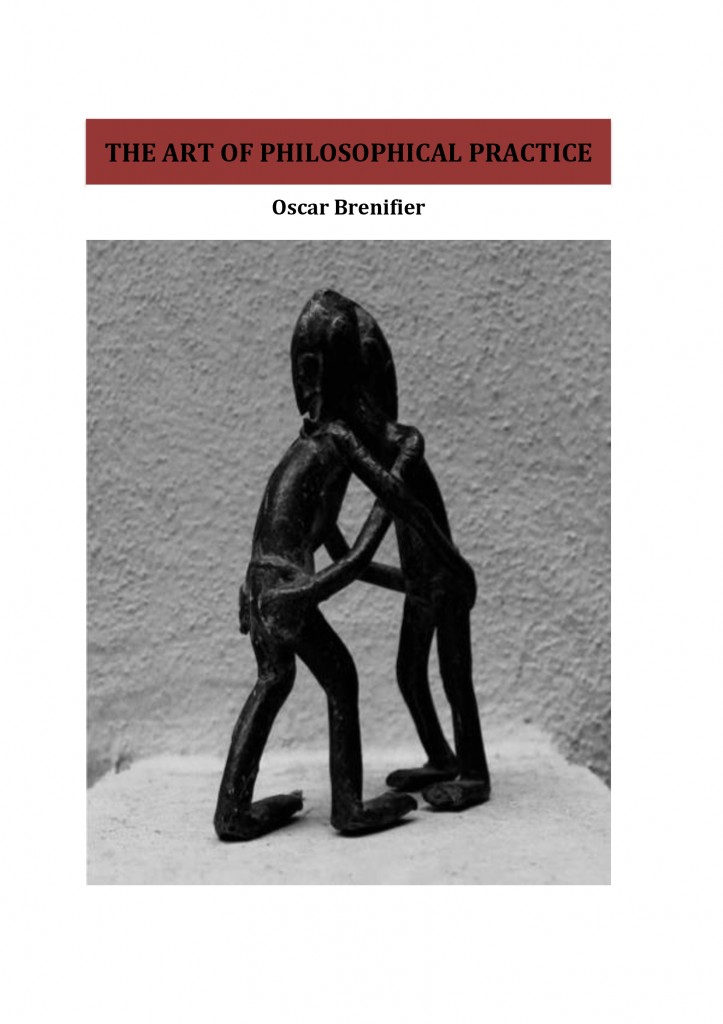
The emerging of new practices in the domain of philosophy, motivated by the desire to philosophize, which is expressed by the wider public since a few years, leads us to ponder the nature of this philosophizing, perhaps, in part, to answer those who question the legitimacy of this recent popularization of the philosophical impulse. In order to better capture its manifold manifestations, the present work will approach this new phenomenon from various angles: from the angle of the attitudes, as astonishment or radicality (fundamentalism), for example; also, from the angle of the skills involved therein, like analysis or argumentation, or again like problematization and conceptualization. But, we will also discuss about dialectic, intuition, philosophical consultation and so on.
OFFLINE & ONLINE International Summer Seminar 2022
First Week of August (August 1st – 7th, 2022)
La Chapelle Saint André, Burgundy (France)
Every summer, in the little village of La Chapelle-Saint-André, Burgundy (France), gather about 40 persons involved in philosophical practice (students, teachers, professors, counselors, trainers) in order to reflect on their work and improve professionally. For seven days, in English, these philosophy practitioners coming from the five continents will participate to different workshops, lead workshops, analyze and evaluate them, theorize about the different issues involved.
The seminar will be held as the two previous years, presential (offline) and virtual (online). For the ones who will decide to be present, the seminar will be all the week. For the ones who won’t be able to come but wish to participate, either you will be able to register for the whole seminar, either for some workshops. You will find all the information at the end of this announcement.
During this week participants practice the following competencies:
- Critical thinking
- Analysis of people’s behavior and answers
- Interpretation
- Argumentation
- Questioning
- Distinguish objective and subjective thinking
- Conceptualization
- Shifting paradigms and practicing flexibility
Individuals participate in the following activities:
- Workshops on different philosophical competencies such as argumentation, problematization, questioning, identifying presuppositions, etc
- Daily philosophical consultations to observe and to analyze
- Daily training consultation groups, to practice one’s questioning skills
- Meta-level discussion on the process, the workshops, the method
In this context, philosophy is not any more an academic activity centered on the history of ideas, and one does not come simply to narrate what he does in his home country. The principle is to get acquainted with varied ways of philosophizing, as an activity constitutive of the mind and the self. Philosophy with children, philosophical consultation, philosophy workshops, Socratic dialogue, etc., one is introduced to the many forms and variants of such an endeavor. It is not so much knowledge that is at stake here, but acquiring and developing skills. How to conceptualize, how to problematize, how to deepen understanding of given ideas, and especially how to create a situation where this activity can be induced, is the main focus of the work.
Of course, Socratic maieutic is a key methodological point, but as well dialectics, analytics, community of enquiry, constitute as many entries and matrices to define the work. If they wish so, participants can facilitate a workshop, a situation which provides an occasion for any practitioner to show how he works and get some critical feed-back on his work and his methodology, so one becomes more conscious of his own options and activity. Since the atmosphere of this seminar is open, inclined to both rigor and diversity, it creates a context where one can really express his view instead of hiding behind the usual pseudo-consensus where “everything is fine and we are all great”. In this sense, the idea is to recreate the context of antique philosophical schools, or the gymnasium as described by Plato, where one could challenge other’s ideas and oneself be challenged. In the peaceful atmosphere of a small French village, accompanied with good food and good wine, walks in the beautiful surrounding woods and visit to the medieval site of Vezelay, one can truly devote oneself to philosophical encounters and reflection.
We recommend to read The art of philosophical practice (especially for those who are not familiar with the practice), and for more challenging reading, you can read our new book on Zen tales Philosophizing with Zhuangzi.
Information and registration here
CONTACT
- For the offline seminar, write to Isabelle Millon
Whatsapp: +33603463390
Telegram: +33603463390 - For the online seminar, write to Leïla Millon Bierre
Whatsapp: +33768428208
Telegram: +33768428208
Trainings
Individual tutoring online
For those wishing to train in philosophical practice, the Institute of Philosophical Practices offers individual training, online, using Skype and Google Docs. It is a program of ten weekly sessions, 90 minutes, accompanied by individual work, with a philosopher practitioner. The goal is to discover and practice different philosophical skills: to practice argumentation, analysis, conceptualization, problematization, etc. The program is built on various themes.
For example:
- reflections around a Buddhist tale.
- Interpretation of a Chekhov story.
- How to problematize with questions.
- Study of texts by Nietzsche, Spinoza and Hegel.
- How to do a self-consultation.
- How to evaluate someone based on their answers to a series of questions.
- Interpretation of a Raphael painting.
Anyone interested can ask to watch the video of a session in order to better understand the work.
These courses can be held in different languages: English, French, Spanish, Italian and Russian.
For more information, write to leila.millonbierre@hotmail.com
Written work
For those who do not wish to work via Skype, we also offer a written online training program.
Just like for audiovisual tutoring, you will be assigned a philosopher practitioner, who will send you regular exercises, followed by a rapid feedback on the work done.
This can take different forms:
In marathon, daily, intensive (for 15 days or one month)
In a more leisurely way, 1 or 2 times a week (time to be determined).
For example: You receive an exercise on Monday. For Thursday, the exercise must be done. In less than a day, the tutor evaluates the exercise, and sends you a new one, which must be returned for the following Sunday.
The exchange can take place on the platform of your choice (What’sApp, Messenger, Viber etc.), although the best is to work directly on a Google doc.
The work can take place in two ways: either by theme (philosophical texts, stories, musical works, paintings and others.) It is also possible to propose a theme. The second option is a work on philosophical skills (arguing, problematizing, conceptualizing, evaluating, interpreting, questioning, presupposing).
Group training
For those wishing to train in philosophical practice, the Institute of Philosophical Practices offers group training of 10 sessions, online, using Skype and Google Docs.
The work will be similar to the individual sessions – weekly, for 1h30, with a homework in between. But you will learn in small groups, between 2 and 10 people. The number of people will depend on the fee you can afford. This work is therefore much less expensive than a one-on-one format.
Each week a philosopher works with one person on an exercise and others observe and then discuss the method. Each person will have a chance of being a client for an individual session and will be able to see sessions with others. The advantage of such a way of working is that you can see better the method of working, learn how to use google doc in the sessions with clients, how to work with them using thinking exercises, etc.
Anyone interested can ask to watch the video of a session or to participate in a trial session as an observer, in order to better understand the work. These courses can be held in different languages: English, French, Spanish, Italian and Russian.
Contact Us
For more information, write to leila.millonbierre@hotmail.com.

